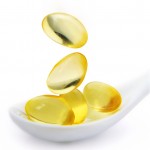Immune
Every year you can experience a new wave of viruses and bacterial infections that can lay you low and stop you from working, studying and carrying on your daily life. Each year many millions of us go to the doctor for treatments and vaccinations to help combat this constant onslaught from microorganisms and yet the most potent protection actually lies within your own body.
Your own immune system has an incredible facility to search out and react to invasions by bacteria and viruses. Sometimes it can prevent the initial infection otherwise if your immune system is strong enough it can react quickly and clear them up in 24 hours whereas if it is weak you may be laid low for several days and in some cases a couple of weeks.
What are your choices?
If you keep your immune system well-nourished with a healthy, balanced diet, you can literally ‘eat yourself well’. Nutrients are needed for every part of your immune system, and for renewal, repair and defence against infection and illness, so its strength will depend on the quality of your diet.
No single food can provide all the essential nutrients that your body needs, and any kind of nutritional deficiency may lead to more frequent and prolonged illnesses. It is therefore important to maintain a healthy, balanced diet that provides an adequate intake of vitamins, minerals and dietary fibre.
Your immune system also relies on water. It carries nutrients to your cells, carries waste and toxins away from your cells and out of your body, keeps body temperature stable, protects joints and keeps the lining of your mouth hydrated and moist, reducing susceptibility to colds. Drinking plenty of water will also help your body deliver nutrients, flush out waste and dilute mucus, helping eliminate bacteria and viruses that can make you ill.
As well as eating well, certain nutrients can be particularly helpful. Everyone thinks of vitamin C and zinc and they are beneficial but there are also some others which you may not think of as being important for your immune function.
Supplements
A good quality multivitamin and mineral would form the foundation of your supplement programme to make sure that you are getting a ‘little bit of everything’. You then add in those nutrients in slightly higher amounts which are known to be helpful for Immune Problems.
Vitamin C
Unlike most animals, we can’t manufacture vitamin C in our bodies – it has to come from our diet or from supplements. Vitamin C is an important antioxidant and is a water soluble vitamin, which means that it is excreted in your urine every few hours and it can’t be stored. That is why when you take a vitamin C supplement it is better to split it into two amounts in one day rather than one large amount.
Vitamin C has many benefits for your health including your immune function. Vitamin C is an important vitamin for your immune system because vitamin C is found in high concentrations in immune cells. Research has shown that vitamin C can ease symptoms of colds and flu and shorten the duration of colds. It is thought to help improve the function of phagocytes which are white blood cells that engulf pathogens.
Vitamin D
Over the last few years, the knowledge of the benefits of vitamin D in all areas of our health has been enormous including its effects on strengthening your immune system. During the winter months we are going to be exposed to less sunlight and this means that our bodies are going to be manufacturing less vitamin D. In July 2016, Public Health England said that children and adults should be taking vitamin D every day, especially over the winter. This advice was prompted because so many people are deficient in vitamin D without realising it.
There is some concern that most people today are not getting much vitamin D from their diet, especially those who are eating junk food and not eating any or very little oily fish or eggs. My recommendation would be check your level with a simple home finger prick test please click Vitamin D Deficiency Test
Zinc
Zinc helps to increase your immune-boosting white blood cells and it also regulates the T cells and natural killer cells all important parts of your immune system. Zinc has been shown to reduce the severity of the common and possibly shorten its duration. The European Foods Standard Agency has allowed claims to be made on vitamin C, vitamin D and zinc supplements to say ‘contributes to the normal function of the immune system’. So we know there is a strong evidence base on the effects of these nutrients on the immune system for these claims to be allowed.
Beta Glucans
Beta glucans are found in foods such as oats and rye. They help to make your immune system more efficient and they stimulate the activity of macrophages which destroy pathogens. Beta glucans affect your innate (in-born) immune system by activating natural killer cells, neutrophils (a type of white blood cell) and macrophages.
Probiotics
You need good levels of beneficial bacteria in your digestive system to boost your immunity as 70% of your immune system is in your gut and the best way to take these are in supplement form rather than sugary probiotic drinks.
Mushrooms
There are some excellent mushrooms for your immune system, which can be taken in supplement form as well as used in cooking and these include shitake, reishi and maitake. The mushrooms reishi, shitake and maitake have been studied for their immune modulating effects and can be used both as prevention and during an infection. Shitake mushrooms in particular possess antibacterial and antiviral properties.
Herbs
When you are aiming to improve your immune function certain herbs can be helpful to nourish and support your immune system. A good combination should contain black elderberry, olive leaf and garlic.
Black Elderberry and Olive Leaf
Black elderberry and olive leaf are important botanicals which have been used for centuries to combat infections.
Black elderberry has been shown to have antiviral properties which are particularly helpful in the flu season. Olive leaf can stimulate phagocytosis (the ability of the white blood cells to engulf viruses and bacteria).
Garlic
Garlic has been used for centuries and it acts as a powerful immune booster that stimulates the multiplication of infection-fighting white cells, garlic boosts natural killer-cell activity and increases the efficiency of antibody production.
Tests
There are a number of tests available that are extremely useful and are well worth considering. These tests can give you invaluable insights into understanding what is going on in your body at the moment. The analysis of these results lets you know what supplements you need to take in order to bring your body back into balance and into optimum health. You would then be re-tested after three months to monitor your progress and to adjust the supplement programme accordingly.
Online Personalised Supplement Assessment Programme
Discover what vitamins and minerals you need and should be taking The analysis of this comprehensive questionnaire will give you a three monthly supplement programme to help balance any vitamin and mineral deficiencies you may have. Find out more – Online Personalised Supplement Assessment Programme
Vitamin D Deficiency Test (at home finger prick blood)
With all the news in the press about the benefits of having good levels of vitamin D e.g. prevention of cancer, especially breast cancer, heart disease, Type 2 diabetes and osteoporosis it is important that you know whether or not you are lacking in this vital vitamin.
We know that Vitamin D is required for calcium absorption, but it also plays many other important roles including prevention of cancer, especially breast cancer, heart disease, Type 2 diabetes and osteoporosis. As well as all of these benefits, it is now thought that having good levels of vitamin D is important for healthy immune function and it can also help slow down the ageing process and low levels have been implicated in autoimmune diseases such as rheumatoid arthritis, lupus and inflammatory bowel disease. To check whether you have sufficient levels of Vitamin D please click Vitamin D Deficiency Test (at home finger prick blood)
Plan of Action
Nutrition
Ensure you are getting the right nutrition. Follow the dietary recommendations outlined in the free Foundation of Health ebook.
Supplements
The supplement programme below should be taken for at least three months in order to achieve best results.
Nutrients and Amounts
| A good multivitamin and mineral | Vitamin C 1000mg |
| Vitamin D3 400ius | Zinc 15mg |
| Beta glucans 50mg | Mushrooms (reishi, shitake, maitake) 100mg |
| Probiotics 22 billion bacteria |
Herbs
- Black elderberry 400mg
- Olive leaf 200mg
- Garlic 2000mg
To avoid having to purchase numerous supplements for the above and to make the process easier, I have put together a supplement programme which contains all the nutrients mentioned above and in the correct amounts. For more information about these click Immune Supplement Programme for over 45’s or Immune Supplement Programme for Under 45’s.
- If you would like to order these special supplements now, you can do so through the Natural Health Practice by clicking Immune Supplements for over 45’s at The Natural Health Practice or Immune Supplements for under 45’s at The Natural Health Practice.
Tests
The tests below have been specially selected to be the most helpful if you are concerned about Immune Problems.
Online Personalised Supplement Assessment Programme
Vitamin D Deficiency Test (at home finger prick blood)
After three months you would then have a re-test in order to monitor your progress and adjust your supplement
If you need help in obtaining any of the supplements or tests mentioned above, click Immune at The Natural Health Practice. They can supply all of them for you online or if you prefer to talk to somebody first you can also order by mail order on the telephone. The products supplied by this company are always of the highest quality.
The contents of this site are for information only and are intended to assist readers in identifying symptoms and conditions they may be experiencing. This site is not intended to be a substitute for taking proper medical advice and should not be relied upon in this way. Always consult a qualified doctor or health practitioner, especially if you are pregnant, taking the pill or on any medication. Your situation will need to be looked at individually and you should not attempt to self treat. The author and publisher cannot accept responsibility for illness arising out of the failure to seek medical advice from a doctor. The views expressed by third parties placing material on these pages are not representative of the views of the author or publisher. The Author and Publisher cannot monitor the content not produced by us and has not reviewed all the third party material published on this site and the Author and Publisher accept no liability whatsoever in relation to the content of third party material placed on these pages.




